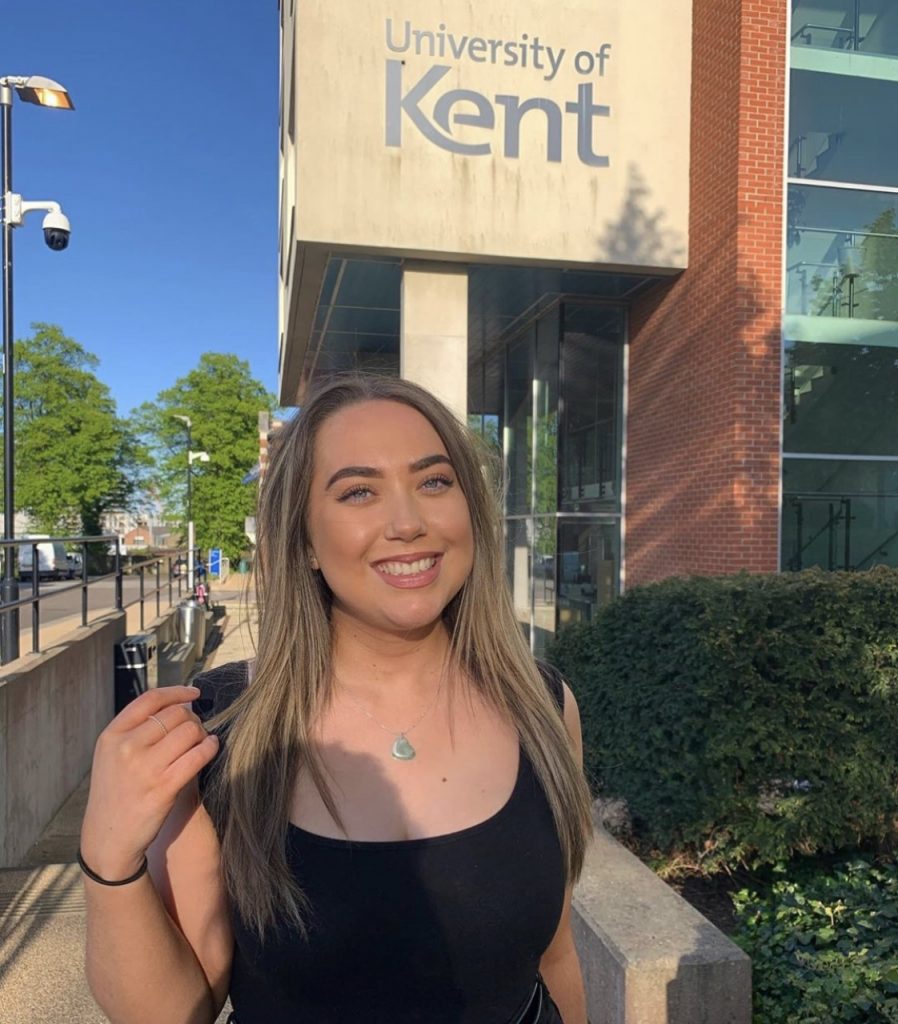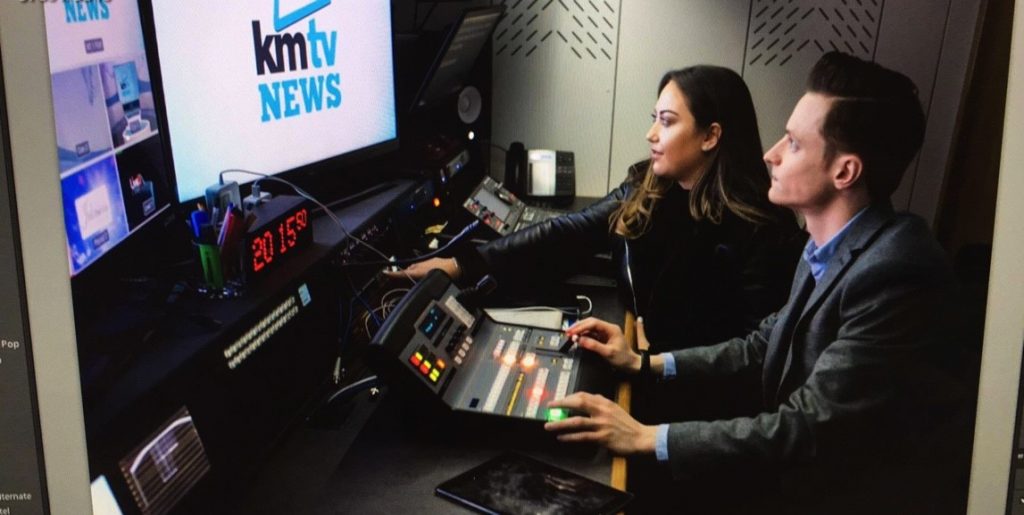When I embarked on my journalism degree, I hadn’t prepared for the fact that I would be completing my final year of university during a world pandemic.
The last year of university is most definitely challenging. Add a world pandemic into the mix and there’s an enormous amount of unexpected pressure and stress added.
Luckily for me, I had made the decision to study at the Centre for Journalism at the University of Kent. While navigating life through lockdown didn’t come with a manual, the staff at the centre did their absolute best to continue our studies as normally as possible and offered as much reassurance and support as we needed.
At the Centre for Journalism (CfJ), you have the option to write a dissertation or produce a final-year project, where you can showcase the skills you have acquired over the last three years. I chose to create a final-year project, a 20-minute long documentary on domestic abuse.
Under normal circumstances, you would have unlimited access to the Centre’s newsrooms. This is where the iMac computers are with all the design, video and audio editing software that you would need to create a project.
When it became apparent that the University was going to close, the lecturers at the CfJ decided that any student creating a final-year project could take an iMac home so that they could still complete their work. We were also allowed to take home any camera or audio equipment that we would need to finish our projects.
Not only did the lecturers give us all the equipment we would need to complete our work, they also gave us as much of their time as they could over Skype and Zoom. Students completing a final-year project or dissertation could email their supervisor at any time and arrange meetings via video chat to discuss any concerns they had. I had quite a lot given the nature of my topic and I initially worried that, due to lockdown, I wouldn’t speak with my supervisor as much as I normally would at the Centre. I had no reason to worry as my supervisor was always ready to give me as much time, support and reassurance as I needed.
We would have regular meetings, sometimes more than once a week, and discuss any issues I was facing with my project. My main problem was finding enough shots for my documentary. Covering a topic like domestic abuse made it quite challenging to find appropriate shots that tell your story well. After many phone calls, we achieved a project that, at times, felt impossible to make.
I don’t think I’ll ever be able to thank the lecturers at the CfJ enough for all their help and reassurance during the pandemic. It was an entirely new way of living for everyone but they somehow managed to keep things business as usual. Each meeting with each lecturer was filled with smiles and laughs. While it sounds like a small thing, it offered so much hope in quite a dark time.
I know many people have been affected by anxiety during lockdown and I wanted to acknowledge just how good the support is for mental health, not only from staff at the CfJ, but also from the wellbeing team. You can contact Student Support and Wellbeing at any time and they arrange counselling sessions within a matter of days to try and help you manage worries you may have.
Now that I’ve told you what it’s like to study at the CfJ during a world pandemic, let me tell you what it’s like on a normal day.
Everything you’re taught at the Centre is designed to help you become a multimedia journalist, having skills for print, broadcast and online journalism. As well as acquiring a journalism degree, you also undertake the NCTJ diploma, which not many universities offer. The NCTJ Diploma is a nationally recognised qualification, respected throughout the industry, with most jobs requiring you to have it.
The Centre helps you to discover what area of journalism you enjoy, where your strengths are and what you may consider specialising in.
In my second year I had a conversation with my broadcast lecturer about how I didn’t enjoy TV and couldn’t see myself pursuing a career in broadcast. We had a lengthy chat, where he told me it was his job to see if he could change my mind on this. Needless to say, that from his teaching and passion for broadcast, I started to enjoy it. I never imagined when I started university that I would be able to put a 20-minute documentary together, but now, here I am, hopeful of a career in TV.
The Centre arranges work experience for all students in their first year. From second year you also get the chance to intern at KMTV, Kent’s TV station which is based on campus.
Most jobs will require industry experience and studying at the CfJ this is something you will never be shy of.
I’ve been amazed watching the way journalists have worked during the pandemic holding the government to account. From my time at the Centre for Journalism, my dream to be as creditable as the reporters we see on our screens every day, feels a lot more achievable. The CfJ not only gives you all the skills you would need to be a successful journalist, it also gives you the confidence to make it happen.
Find out more about the three-year Journalism BA degree at the Centre for Journalism


